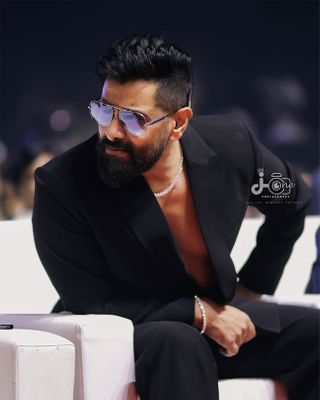The Village Movie Review
When it comes to marketing spook, Manoj Night Shyamalan is second to none.
His very first film, "The Sixth Sense", gave birth to a new sub-genre of horror cinema where other worldly creatures became a tangible part of the living world.
The bond between 'their' world and ours was further extended into "Unbreakable". Again, like Shyamalan's debut, the post-debut shiver-giver was remarkably rich.
"Signs", about a farming village being invaded by extra-terrestrials, was too cute to be anything but corny.
Now in "The Village", our director who dreams dreadfully scary dreams, drives a very hard bargain. There are scenes, images, moments and snatches of words that linger up in the air in a vaporous magnificence.
Really, I can't forget the wonderful
correlation that Shyamalan establishes between human nature and the chilling paradoxes that constitute cosmic reality. While "Signs" suffered from acute portability, "The Village" is expansive and roomy.
The claustrophobia of a cloistered village, where everyone knows one another by first name, is brought out in vibrant vignettes that accentuate the disturbances in the scheme of things.
The other world is the driving force of Shyamalan's shivery vision. On this occasion, he deliberately subverts his main thrust as a creative artiste. The driving force ends up being a farce, as the village secret comes tumbling out.
"Try not to scream," village patriarch Edward Walker (William Hurt) warns the film's blind heroine Ivy (played brilliantly by Bryce Dallas Howard) when he leads her to the plot's big secret.
Cleverly - and Shyamalan is nothing if not clever - the narrative cuts to a later sequence and returns to the big secret only towards the end. He is stylish and secretive and like the village that is protected by its elders from calamitous forces, Shyamalan protects his narrative from a sure-shot exposure by withholding the suspense.
But once the secret is out, the film loses its audience almost completely.
Admittedly the 'climax' with the blind girl groping through the forest is more preposterous than scary. By this point we already know there's no ghoulish presence in the foliage. Hence the eerie music and craning camera angles seem symptomatic of an illness that never existed. Ram Gopal Varma created more terror in "Jungle" by simply holding the camera at a particular angle.
As a scare-fest "The Village" doesn't go far. The initial build-up of atmospheric tensions is first rate though.
The way Shyamalan frames his characters in husky silhouettes is truly a sign of a master creator. The sequence where Ivy holds her wounded man in a pokey room full of accusing mementos is incredibly chilling and poignant.
In a later sequence, she has to blindly grope into the room of the man who has stabbed her love, walk urgently to him and slap him repeatedly. I've watched this stunning sequence repeatedly and yet I'm equally shocked every time.
Shyamalan's narration is as rich and textured as a beautiful melody that you can hear repeatedly for it to acquire renewed relevance. Ever so tantalizingly, Shyamalan lifts the veil of enigma that sheaths his desolate people and their forlorn locations.
But then once the veil is lifted, the enigma evaporates entirely. The game is up.
What enthrals more than the terror is the innocence at the heart of this film about cleansing the conscience at the core level. The characters are positioned in a light that flatters them, only to deceive them at the end.
Though personally I was disappointed by the brevity of Joaquin Phoenix's role and the ephemeral precocity of Adrien Brody's interpretation of the stereotypical village idiot, the performances are of a picture-perfect quality, and I mean that in a positive way.
Every actor gets into the time-defying frozen-frame groove effortlessly, merging with unostentatious but dramatic force, into the plot's languorous leitmotif. Howard as the blind girl who









